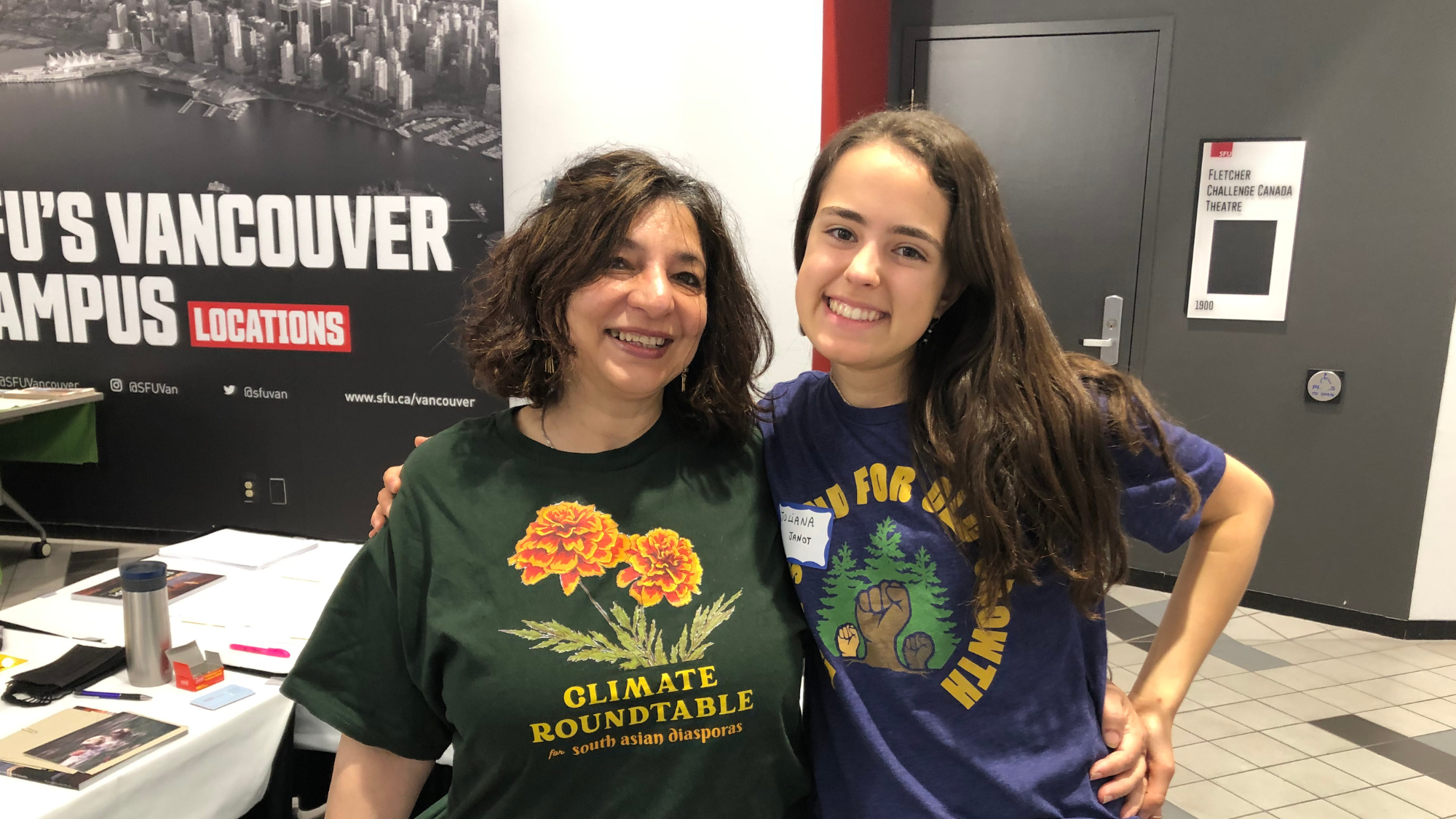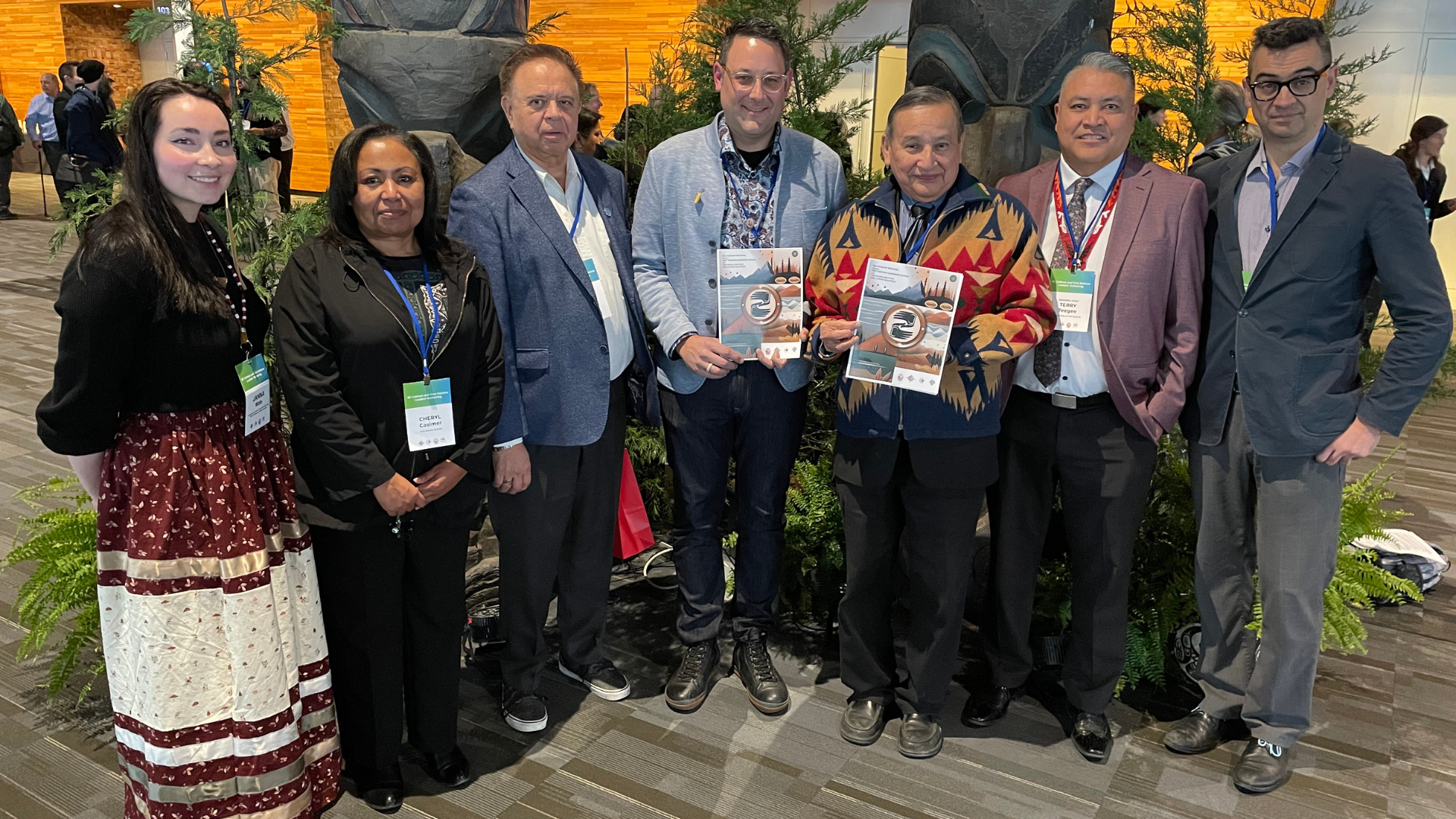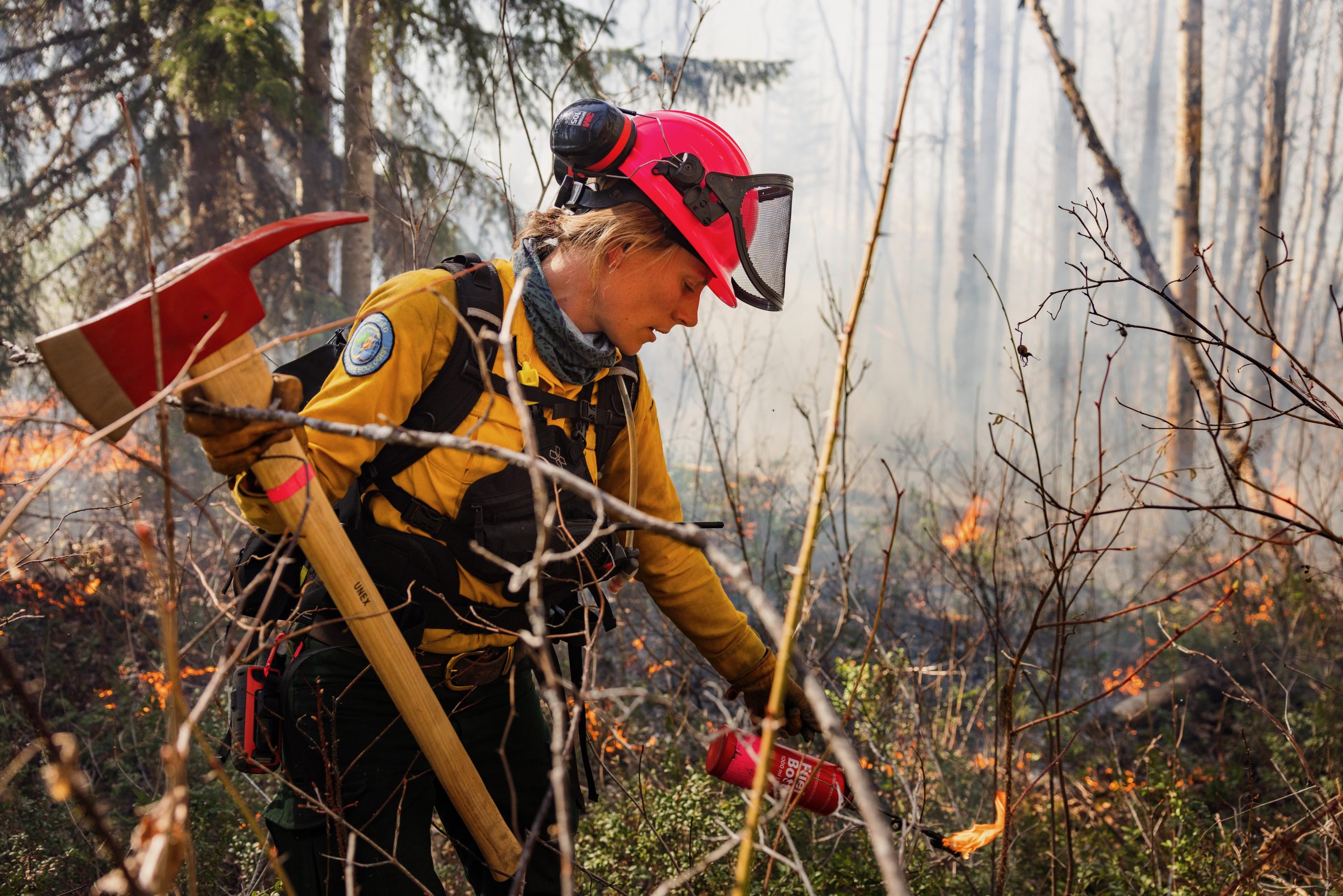How a PICS intern connected B.C. climate action groups
The climate movement in British Columbia is diverse, determined, and deeply rooted in its communities. Yet, like any movement facing a global crisis, it needs support, collaboration, and resources to sustain its momentum. That’s where the West Coast Climate Action Network (WE-CAN) comes in, supporting its 293+ member groups to help them thrive. WE-CAN is a provincial climate network that aims to support, amplify, and promote the work of its member groups.
This summer, Juliana Janot, a PICS-funded intern with WE-CAN, embarked on a mission to understand the landscape of B.C.’s climate movement. Her work aimed to assess the unique strengths, needs, and potential of B.C.’s climate organizations, while identifying ways for WE-CAN to better support its members.
Through dozens of interviews with climate leaders, Janot explored the purpose of each organization, their individual challenges, and how WE-CAN can support them. The result? A 45-page report that identifies the needs of B.C.’s climate action groups, and provides practical recommendations for improved support and collaboration.
A ground-level look at B.C.’s climate action
Janot’s goal was to connect with as many WE-CAN member organizations as possible, gather insights, and assess the overall structure and needs of the climate movement in B.C. Over four months, she interviewed 71 leaders from various organizations, including grassroots collectives, labour unions, and faith-based groups.
“It was inspiring to learn about the different actions each group is taking,” Janot says. “From local restoration projects to broad-based policy advocacy, the diversity in strategies is remarkable, but this diversity also brings unique challenges.
“I really felt cared for when WE-CAN reached out to connect. It feels like WE-CAN is listening and doing something for us. That’s huge, thank you.”
– Greg McKone, Fraser Valley Climate Action Group
Despite their distinct strengths, Janot noted that many organizations share common needs—such as funding, technical support, and strategic resources. The report also emphasized the potential for WE-CAN to act as a hub, offering services and fostering a sense of community.
Top needs of B.C. climate groups
Funding: Many organizations face significant funding gaps, affecting their capacity to sustain programs.
Technical support: Groups need technical support with tools like websites and social media to improve their impact.
Public outreach: Building strong connections with local communities is crucial for sustained climate action.
Capacity: Attracting and maintaining a diverse set of volunteers is essential to support operations.
One of the most striking findings was the wealth of specialized skills across B.C.’s climate organizations. From data analysis to grassroots organizing, groups bring a range of capabilities that, when shared, can strengthen the movement as a whole. WE-CAN’s role, Janot suggests, could be to facilitate knowledge-sharing sessions, training programs, and a regional skill-sharing network.
Throughout her interviews, Janot noticed a common theme; a widespread need for capacity and support. To address this, she started a Slack channel for WE-CAN groups, providing a space to connect and share resources. This simple action helped bridge the capacity gap that many climate groups face.
“These groups are incredibly skilled. Some are experts in advocacy, while others excel in community education or restoration work. There’s so much they could learn from each other, building connections between groups could unlock even more potential across B.C.”
– Juliana Janot
For Janot, the internship was not just about gathering data—it was about being part of something bigger. Her work has given WE-CAN a clearer understanding of its membership base and laid the groundwork for a more interconnected climate movement across B.C. And the connections she forged and insights she gained will undoubtedly fuel her future work as a climate leader.
“I came into this internship knowing very little about B.C.’s climate movement. Now, I feel like I have a map of the landscape and a better understanding of how all these groups can come together,” she reflects. “The experience taught me that collaboration is key to building a stronger, more resilient movement.”
In September 2024, Janot started a new internship in climate lobbying at Citizens’ Climate Lobby Canada.
Are you a student at a PICS university (SFU, UVic, UNBC & UBC) that is looking for an opportunity to practice and grow your skills in a climate-related field?
Christy Ascione is a communications specialist with the Pacific Institute for Climate Solutions.




